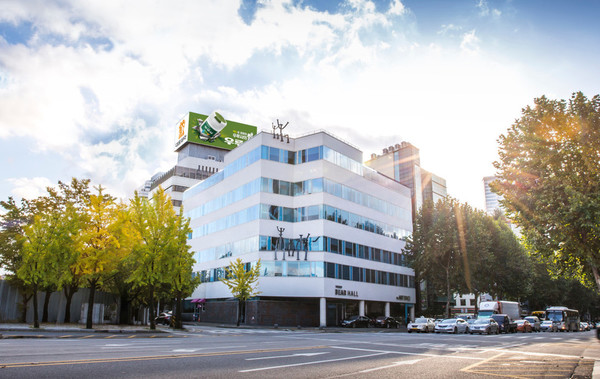Daewoong Pharmaceutical has won the approval for a phase 2 investigational new drug (IND) clinical trial of DWN12088, its treatment candidate for idiopathic pulmonary fibrosis (IPF), in Korea following the nod in the U.S.
The Ministry of Food and Drug Safety gave the go-ahead to Daewoong’s treatment candidate for IPF, DWN12088, on Tuesday.
Daewoong will conduct clinical trials at various medical institutions, including Inje University Busan Paik Hospital, Ulsan University Hospital, Ajou University Hospital, Soon Chun Hyang University Bucheon Hospital, Severance Hospital, Asan Medical Center, Seoul National University Hospital, Samsung Medical Center, Myongji Hospital, and the Catholic University of Korea Bucheon St. Mary’s Hospital.
The domestic phase clinical trial is part of DWN12088’s global clinical trials, and Daewoong obtained approval for the phase 2 IND clinical trial from the U.S. Food and Drug Administration in June.
Daewoong will administer a test or a placebo drug to 102 IPF patients in the U.S. and Korea for 24 weeks and assess how much their deterioration of vital capacity (FVC) figure improves.
IPF is a lung disease in which the lungs slowly harden due to excessively generated fibrous tissue and lose their function. It is a rare disease difficult to treat, with the five-year survival rate after diagnosis remaining below 40 percent.

There are treatments developed by global pharmaceutical companies, such as Ofev (ingredient: nintedanib) developed by Boehringer Ingelheim of Germany and Pirespa (ingredient: pirfenidone) developed by Shionogi Pharmaceutical of Japan. However, they failed to stop the disease entirely, forcing patients to give up taking them frequently due to adverse effects and leaving high unmet medical demands.
According to the global market surveyor, Research And Markets, the IPF treatment market is expected to grow by 7 percent yearly to $6.1 billion (8.4 trillion won) in 2030.
Daewoong is sounding out the possibility of making DWN12088 a global new drug through clinical trials. In phase 1 clinical trial, the company confirmed its safety and pharmacokinetic properties on 162 healthy subjects in Australia and Korea.
According to Daewoong, DWN12088 is the world’s first anti-fibrosis new drug that inhibits PRS (Prolyl-tRNA Synthetase). PRS is an enzyme that plays an essential role in collagen synthesis. DWN12088 has a mechanism to suppress excessive production of collagen that causes fibrosis by reducing the action of PRS protein that affects collagen production.
DWN12088 has been designated by the FDA as a rare treatment for IPF and systemic scleroderma and was also designated as subject to fast-track development in July. Daewoong plans to expand the indication of DWN12088 to various rare fibrosis diseases, including fibrosis in the skin, kidney, liver, and heart.
According to Clinical Trials, a clinical trial information site of the U.S. National Institutes of Health (NIH), the expected data collection deadline for phase 2 clinical trials of DWN12008 has been set for April 30, 2024.
Attention is on whether Daewoong Pharmaceutical, which has challenged the development of treatments for rare diseases, will be able to create a new domestic drug.
Related articles
- Daewoong to begin phase 3 diabetes trial in China in September
- Daewoong Pharm's Fexuclue secures additional gastritis indication
- [Weekly stock relay] ‘Daewoong’s strengthened R&D ability deserves investor attention’
- Daewoong completes phase 1 clinical trial of hair loss injection treatment
- Daewoong wins nod for cell processing facility to enter CDMO biz

